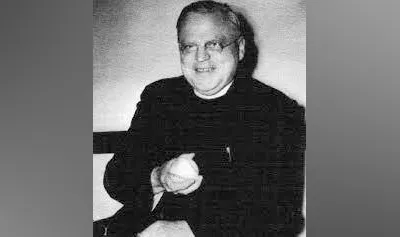
CNA Staff, May 14, 2024 / 06:00 am (CNA).
Recent data from the federally administered National Survey of Family Growth shows large majorities of Catholics report using at least one form of artificial contraception — with over 90% having used condoms and more than 60% having used the hormonal birth control pill.
Experts say this is “a crisis of catechesis within the Church” and one that requires both a compassionate response and a firm application of Catholic sexual ethics.
The Catholic Church for centuries has taught that all forms of artificial birth control are illicit and forbidden to married couples. This teaching was formalized in 1968 by St. Paul VI, who in his encyclical Humanae Vitae declared that “any action … specifically intended to prevent procreation” was “absolutely excluded” as a lawful means of regulating the number of children in a Catholic marriage.
Though Church teaching on the matter continues to be unambiguous, large numbers of Catholics have reported high usages of artificial contraception over the years. A 2011 Guttmacher study, for instance, found that “among women who are currently at risk of unintended pregnancy,” fully 87% of Catholics “use a method other than natural family planning.”
John Grabowski, a professor of moral theology and ethics at the Catholic University of America, told CNA that the data around Catholic contraception usage have been “known for some time.”
“I think that this points to a crisis of catechesis within the Church,” he said. “Whatever we are currently doing to form people in the faith is not working well because this data shows that they are being catechized by the gospel of the sexual revolution rather than the Gospel proclaimed by the Church.”
Grabowski argued that Catholics who use artificial contraception “don’t realize that in choosing to contracept they are bringing something toxic into their marriages.”
“In some cases, the contraceptives they use are physically toxic such as oral contraception, which has a whole range of negative health effects [both] physically and psychologically on women,” he said.
“In some cases they are actually not genuinely contraceptive but actually work as abortifacients (such as some versions of the IUD),” he continued.
“In almost every case, fertility is treated as a disease rather than a gift and a healthy function of the human body.”
The “gift” of one’s fertility has long been a part of Catholic sexual ethics; in Humanae Vitae St. Paul VI stressed the need to “experience the gift of married love while respecting the laws of conception.”
The “sexual faculties,” the pope wrote, are “concerned by their very nature with the generation of life, of which God is the source.”
Instead of artificial contraception, the Church promotes natural family planning (NFP) for both avoiding and achieving pregnancy. NFP methods, which are all based on the natural signs and symptoms of the fertile and infertile phases of a woman’s menstrual cycle, can include the use of fertility monitoring devices and apps. NFP respects both the unitive and procreative meaning of sex within marriage.
Gregory Popcak, the founder of the Pastoral Solutions Institute, which helps Catholics align their marriages and their lives with the Catholic faith, told CNA that there “isn’t a lot of quality research on NFP.”
“According to the available data, the NFP usage rate among Catholics tends to be fairly consistently about 2%-3%,” he said.
“That said, I believe there may be a small bounce in NFP usage because of the use of sophisticated apps that make NFP easier and (potentially) more effective to use,” he noted.
Popcak argued that the Church’s teachings on birth control were “more front-and-center” under prior popes but that it has gone “largely silent” under Pope Francis.
He argued that marriage advocates and Church leaders need to “recenter the conversation about NFP and stop making it about whether people are following the rules or not.”
“That is the most superficial way we can have the conversation,” he said. “We have to proclaim the notion that marriage, along with all the other sacraments, is meant to be an instrument of healing. Matrimony is key to God’s plan for healing the generative nature of the human person.”
“We particularly don’t know — on our own — how to love another person the way God wants us to,” he said. “Matrimony exists to heal the damage sin does to our ability to love rightly — especially through our bodies.”
Birth control has ‘a long history’
Theresa Notare, the assistant director for the Natural Family Planning Program at the U.S. Conference of Catholic Bishops’ Secretariat for Laity, Marriage, Family Life, and Youth, acknowledged that contraception itself is nothing new.
“The whole idea of birth control, of family planning, has a long history of tapping into what people think is good, what they think they need and want, not only for themselves but for their children,” she said.
Notare pointed out that contraception has been practiced on a wide scale for centuries and for a variety of reasons. In many cases it was driven by the belief that parents “should be able to take care of the children they have” and not overtax potentially scarce family resources.
The Church has regularly acknowledged the potential necessity of delaying childbearing for such reasons. St. John Paul II said in 1992 that husbands and wives are “deeply affected by social and economic circumstances” and that “conditions of poverty” can “cause a couple to be unprepared for the gift of new life.”
Though Church teaching has for years allowed for NFP in such cases, Notare said that our current technological zeitgeist has created “an impatience for anything that takes slow change.”
Periodic abstinence as dictated by NFP “means you have to change your sexual behavior; that takes discipline,” she said.
“People in the West, especially Americans, we just hate that sort of thing,” she said. “Why bother when you could pop a pill, open up a package, use a device?”
Notare argued that the laity “have not generally heard the Church’s good message on sex.”
“For years they heard ‘guilt’ and didn’t hear the positive side of teachings,” she said. Once Humanae Vitae was promulgated, meanwhile, “too many priests had stopped speaking on the birth control issue.”
“In that void, the culture imposed itself,” she said. “The majority of Catholics, at this point in time, are victims of the culture. They don’t know it. They’re absolutely ignorant of it.”
What can the Church do?
Church leaders and lay advocates have for years been working to counteract the huge Catholic uptake in contraception. The U.S. bishops promote natural family planning through a variety of means, for instance, such as its directory of NFP instructors, while groups like the Couple to Couple League offer classes and resources for engaged and married couples.
Grabowski said the Church needs to use its evangelization resources to better educate Catholics on Catholic sexual ethics.
“As the Church in the U.S. is trying to better form people in the Catholic belief of Christ’s real presence in the Eucharist in this Eucharistic revival, we need a similar kind of effort to better form people in a Catholic vision of the human person and sexuality,” he said.
Notare suggested that the faithful should look to Humanae Vitae as a good start. “The language is easy. It’s so beautifully laid out, talking about the nature of married love and the gift of procreation,” she said. “I would encourage people to read that. It’s very clear.”
Popcak, meanwhile, acknowledged “the real challenges that NFP brings out in a relationship.”
The Church “needs to be providing actual pastoral support and guidance for couples” who are using it, he said.
“We need to help couples understand that the challenges that NFP forces to the surface are the very problems that God is asking them to work through so that they can have healthier, happier, and holier relationships,” he said.
Catholic couples who struggle with NFP and aren’t assisted by their spiritual leaders can often just give up on the practice altogether, he said, leading to widespread claims that natural family planning simply doesn’t work.
“Frankly, that’s always been the case, but it’s particularly true now,” Popcak said. “Catholic couples deserve better.”
If you value the news and views Catholic World Report provides, please consider donating to support our efforts. Your contribution will help us continue to make CWR available to all readers worldwide for free, without a subscription. Thank you for your generosity!
Click here for more information on donating to CWR. Click here to sign up for our newsletter.









“Though Church teaching on the matter continues to be unambiguous, large numbers of Catholics have reported high usages of artificial contraception over the years” (Daniel Payne CNA). The reason isn’t at all a mystery. Priests, never mind bishops, haven’t addressed the issue, never mentioning it in decades many even prior to Humanae vitae.
If an associate were to consult the pastor he would likely respond with a quizzical stare and say, Well Father, it’s a delicate issue and people need to form their own opinion on this. And the associate would feel he’d be viewed as intrusive in matters he has no business involving himself in. The matter cannot be resolved by articles or writing books. It has to begin with bishops making it clear that Church doctrine on contraception is obligatory instruction for the laity, from the pulpit and in any other suitable instance.
Good luck with that. The laity will not go along. After the clerical sexual abuse of minors scandals, the Bishops have little credibility on sexual matters.
That’s a good point Will & perhaps part of a general plan. How better to make the Church appear untrustworthy & irrelevant & to destroy the morale of Catholics? Especially on issues affecting marriage & the family.
I’m old enough to remember adults in the 1970’s promoting sexual liberation for children. “Children are sexual beings, too, they should express themselves fully, etc.” People in Hollywood & elsewhere didn’t seem to have too much of a problem with adults interested in minors that way. One Irish politician was caught having been involved with an underage boy & he defended it as something the Classical Greeks practiced.
It seems only when that behavior can be a tool used against the Church that secular culture becomes appalled at the idea. Once they believe the Church has been undermined & weakened thoroughly we may see the whole minor-attracted adult issue emerge again from under the radar. I think Mary Eberstadt wrote a book about that?
I for one Will, will not throw in the towel. The fight for the faith and salvation is only over when you roll over and play dead.
Will. Mrscracker. Don’t downplay the power of the Holy Spirit when we invoke him with faith and courage. Too many in the Church have taken a defeatist attitude, which is an offense to that Spirit of the Father and the Son. Similar to the chastisement of the Israelites when tried in the Sinai desert.
From experience I can assure you that laity will respond with alacrity when clergy including bishops take a courageous stand in favor of Apostolic tradition. Surrender to evil is not an option.
Amen, Father Peter.
My mother’s family crest has the motto “FORTITUDINE VINCIMUS”. Through endurance we conquer. Someone said that it’s not always the most gifted & talented that win a victory but instead those who simply refuse to move aside.
But we should still be watchful & aware of deceptions.
Is so creepy and more than a little perverted how much y’all care about the sex lives of others.
What happens behind closed doors that don’t belong to your bedroom is absolutely none of your business.
Shallow, short-sighted, and misleading comments like this often bring to mind what Frank Sheed wrote over 70 years ago:
More here.
So sex is only for procreation and not pleasure? Perhaps I misinterpret?
The purpose of sex is procreation. Pleasure is simply one motive
As the Frank Sheed quote noted, sex involves the whole person or personality. So, it is physical, emotional, relational, marital, spiritual, psychological, sociological, etc.: It is “comprehensive” in its human dimensions. Thank God for the gift of its pleasure (!) right along with the other gifts associated with it in their own sacred order or hierarchy.
Unitive and procreative are at the top of that hierarchy. Pleasure is a blessed servant of these higher meanings, but a wicked master.
The mass murder of crushed babies that results from exterminating inconvient life, conceived by making sex devoid of prudent concern for consequences, is most certainly my business and every one else’s business who have not made their souls creepy and perverted.
MYOB,
To my way of thinking human procreation & the continuance of the human race is something very important to be concerned about. Certainly not a creepy thing.
There is a great deal that humans do “behind closed doors”. Not all of it is positive. Adultery, theft, and murder come to mind, for which humans prefer no witnesses. Humans need guidance. That’s the reason God and the church laid down rules. In fact I would imagine a church with NO rules isn’t worth anyone’s time. Although, such a church might make sinners feel better about themselves since they would think they are accountable to nobody. “You are not your own, you were bought at a price”, as the bible says. That means appropriate behavior is expected in all areas of one’s life, including sexuality.
“What can the Church do?” Part of the necessary “recentering” is for articles like this one to stop using the redundant and misleading term “artificial contraception.” Natural Family Planning (NFP) is not simply, say, a non-artificial (!?) or more genuine form of “contraception.”
NFP is not contra-conceptive. With reasonable motives and intent, NFP is in full conformance with our endowed human nature and gifted sexuality. Also, the article should not overlook “The Theology of the Body” (1979-85) as the awaited and affirming reflection on the doctrinal Humanae Vitae (1968).
Exactly Mr. Peter. Thank you for that.
Thank you for noting the term “artificial contraception.” Most annoying that term, but it seems to be the preferred one, even among people who ought to know better.
We are now three generations on from Humanae Vitae. I’d say it’s pretty obvious most Catholics don’t have a clue what’s in it, if they think of it at all.